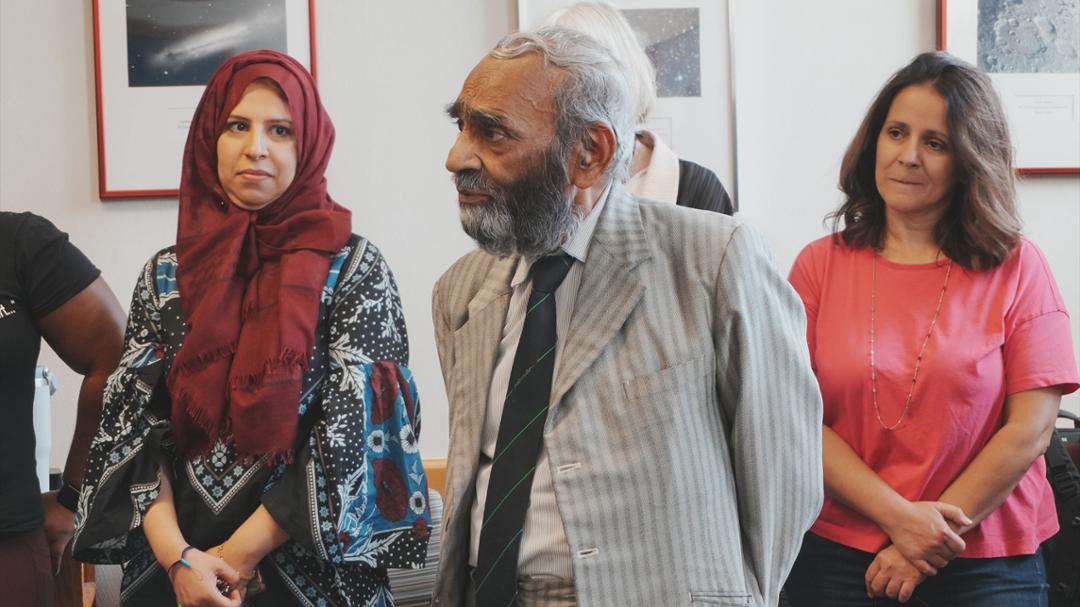The longtime faculty member in the Department of Physics & Astronomy has seen a lot change since arriving in Lubbock more than six decades ago.
When Arfin Lodhi showed up on the campus of Texas Tech University, U.S. President John F. Kennedy had proposed a joint mission to the moon, a new daytime serial called “General Hospital” had just debuted and the U.S. Postal Service had introduced a novel idea: ZIP Codes.
It was 1963, and Texas Tech, or Texas Technological College as it was known at the time, was observing its 40th anniversary. There was some angst among the 12,000-person student body over incendiary topics like civil rights in this country and war in another country, Vietnam, a place far removed from West Texas.
Lodhi was a Pakistan native wrapping up his doctoral thesis at the University of London. His first order of business upon completing his studies would be securing a job. His hope was to land one in the United States, preferably at an institution of higher learning, where he could learn about ongoing research.
He mailed letters of inquiry to a handful of schools, including Texas Tech.
He soon heard back from Henry Thomas, chairman of the physics department. After some back-and-forth communication, Thomas and Lodhi reached an agreement of sorts.
If Lodhi successfully defended his thesis and earned the degree, Texas Tech would extend to him an offer to join the department’s faculty as an assistant professor. The terms came via a letter through the U.S. Postal Service, and Lodhi sent his acceptance the same way. If it worked out, the only remaining hitch would be procuring the proper type of work visa for Lodhi.
That issue was resolved, although it ultimately required help from the U.S. attorney general and Lodhi working on a project funded by the U.S. Defense Department.
“It took some time,” he remembered. “More than they anticipated. I came a little bit later in the fall semester in 1963. They received me at the airport and brought me to the department. I did some paperwork in the afternoon, and then they took me around the town and got me an apartment to stay in. It was a good welcome.”
Six decades later, almost everything has changed.
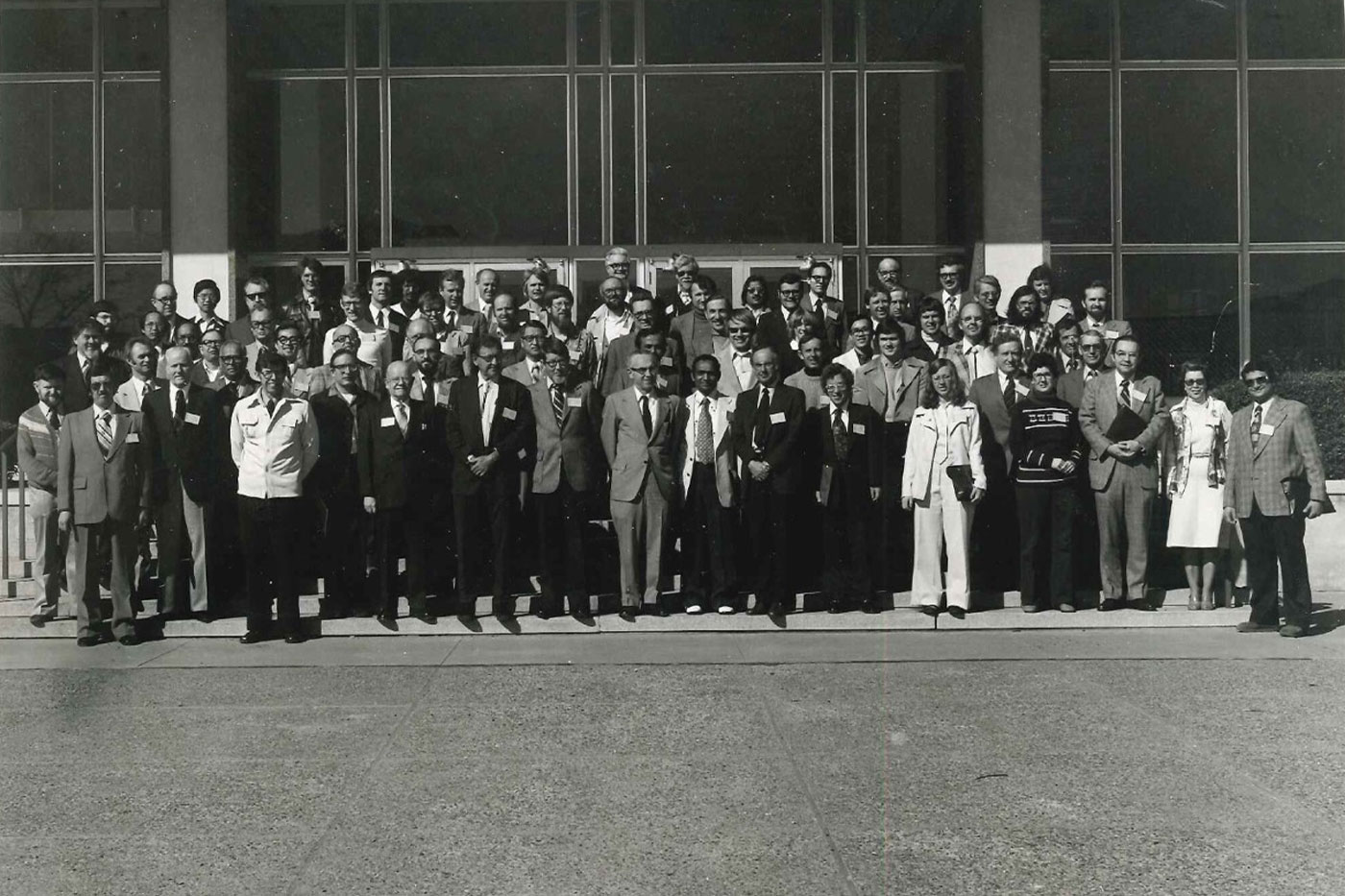
Texas Tech University became the school’s new name in 1969, despite some bumps and pushback along the way to its approval. The physics department also has expanded, adding the discipline of astronomy to its portfolio in 2016.
And Lodhi, whose official title is research professor, is still here. While he has reduced his in-class responsibilities, he still enjoys the opportunity to engage with and learn from students.
“Dr. Lodhi’s longstanding dedication to students and the university community exemplifies the commitment and passion that defines Texas Tech University,” said university President Lawrence Schovanec. “We are deeply grateful for his enduring contributions and proud to honor this remarkable milestone.”
His impact has been felt at numerous levels throughout his decades of service.
“I feel that with his guidance and mentorship, I was able to pave my way into research and graduate studies,” said Hira Farooq, who earned her doctorate in 2020 and now is a lecturer in the department. “He helped and advised me in my career and research. He also recommended me for different positions during my career path.”
Lodhi has simply done what he believed he was meant to do: teach, inspire and challenge students to reach their potential.
“The decades of dedication and service Dr. Lodhi has given to the university, college and the Department of Physics & Astronomy is truly remarkable,” said Tosha Dupras, dean of the College of Arts & Sciences. “In the ever-evolving world of higher education, someone giving their all to one institution for six decades is unheard of. The College of Arts & Sciences is so grateful for the time Dr. Lodhi has spent here and the impact he made on the lives of so many students.”
None of it would have happened without Lodhi’s perseverance during his first days on campus. His area of expertise was nuclear physics, an important field in the early stages of the U.S.-Soviet Cold War. As he looked around, though, he found not a lot of opportunity to expand his research. Then there was Lubbock, which was a dramatically different place from London.
It wasn’t the strongest of endorsements when a fellow faculty member took him on a tour of the city, which focused on a newly developed commercial artery, 50th Street, which was home to retail ventures such as Monterey Center and Caprock Center.
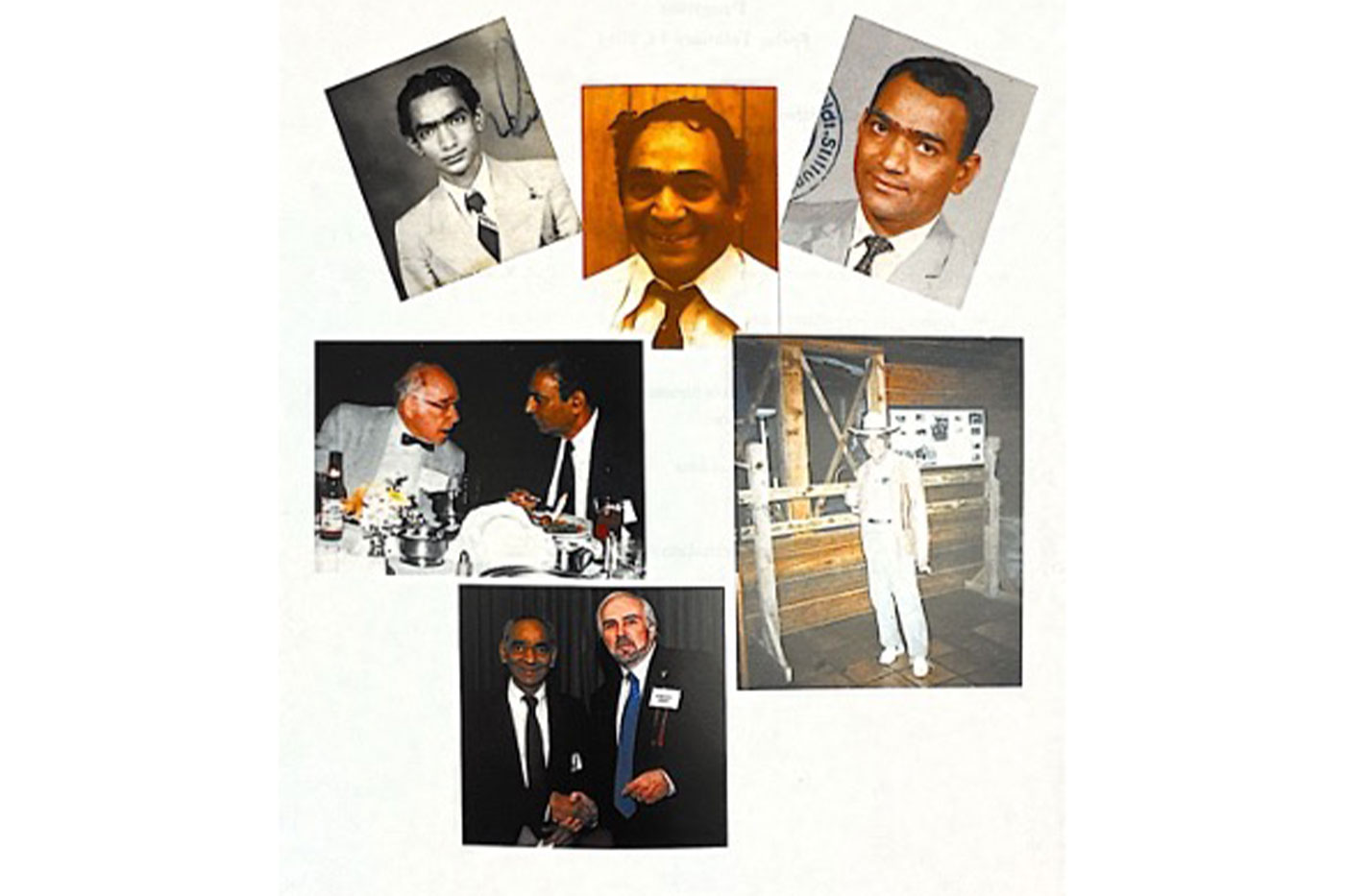
“I was a little disappointed and thought maybe I should be leaving this place,” he said.
Lodhi pitched his departure idea to one of his references for the Texas Tech job. Again, this was through the mail. Eventually, the response came back.
Not a good idea. It would be akin to going back on his word and doing so shortly after signing a contract to come aboard would show bad form. In the 1960s where workplace loyalty would be largely unrecognizable today, reneging on a deal just wasn’t done.
He stuck around, planning to soldier on through a couple of years, gain experience and then look for a new position, one he might be able to better vet ahead of time and contribute more to its research enterprise once aboard.
It never happened, though.
Lodhi expanded his personal research brand right here in West Texas, doing work for Texas Tech as well as other nuclear physics opportunities in the private sector. He soon found his time occupied in a rewarding way.
The fit wasn’t just good for Lodhi. It was equally important for Texas Tech to have a young, capable nuclear physicist of some renown on faculty as a drawing card – for students and researchers alike. It didn’t hurt that the credentials of Thomas, the department chair, were in the same discipline. Thomas led physics during two stretches totaling 20 years between 1958 and 1984.
“My subject was nuclear physics, and it was a very important area at that time,” Lodhi said. “There were not a lot of people available, so that was probably one of the reasons they thought they could grab me.”
A couple of years passed by and then a couple more. One day, Thomas communicated the happy news to Lodhi that he was now tenured. That is, it should have been happy news.
Lodhi wasn’t exactly sure what it meant. So, the concept was explained to him.
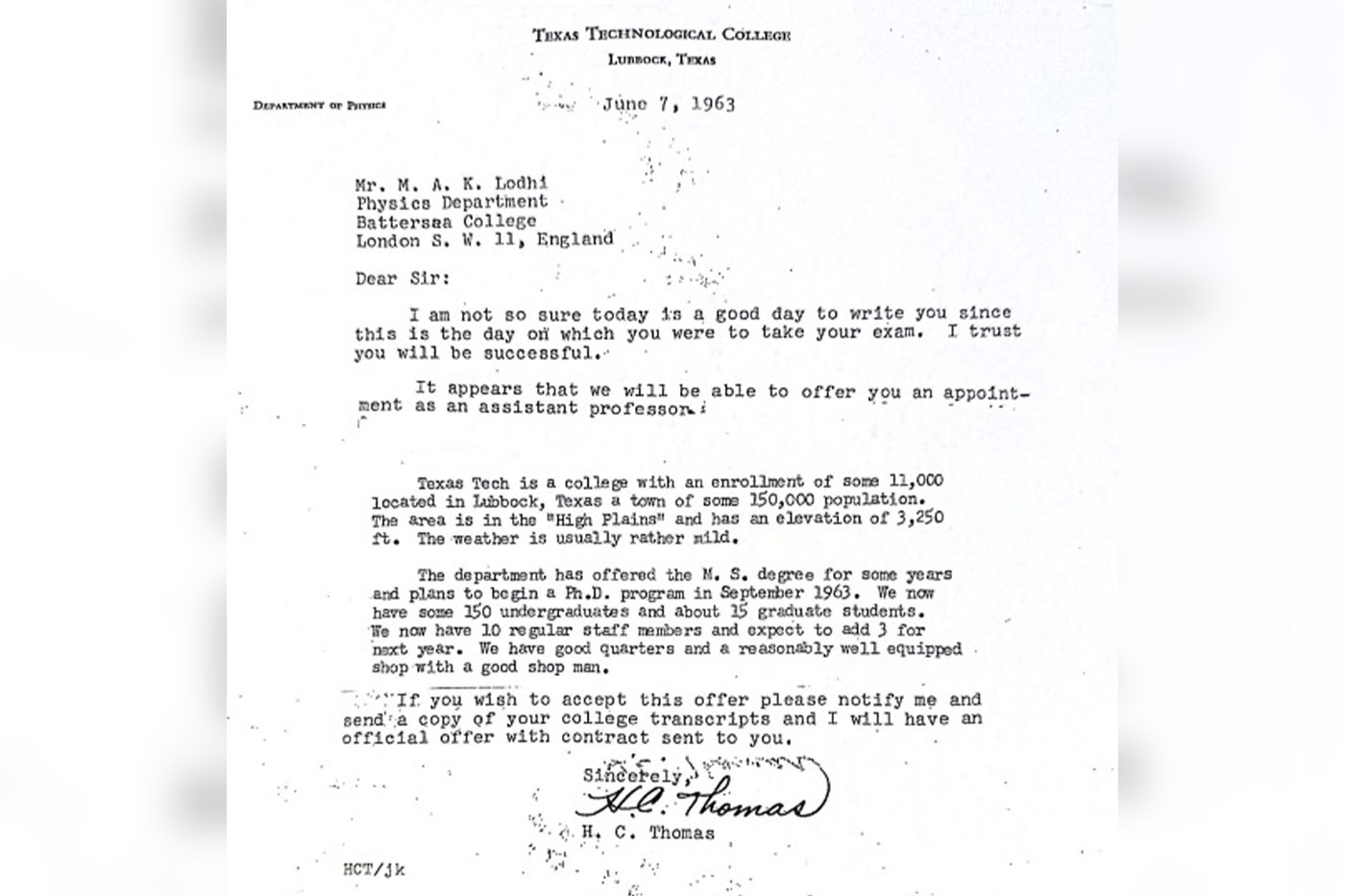
“He said something like, ‘You are now staying as permanent faculty,” Lodhi said. “If the university wants to get rid of you, they can’t.’ So anyway, that is how I ended up here.”
It’s worked out well for Lodhi, one of the longest-tenured employees in university history, and for Texas Tech, which has long prided itself on the “family feel” of its workplace.
“I am deeply grateful to Dr. M.A.K. Lodhi for his tremendous service in educating students and producing such a great mind in research at Texas Tech for more than half a century,” said Sung-Won Lee, current department chair. “I have always admired Dr. Lodhi’s kindness, sense of humor and humility, and I sincerely hope that he will continue to be healthy and actively engaged in research.”
In the early 1960s, Lubbock was a city of approximately 130,000 people. Its deep ties to the local college had calcified since Texas Tech first opened its doors in 1923. The connection between town and gown was critical to the mission and long-term success of each.
The Texas Tech campus was intimate with its heart comprising the Science Quadrangle and other structures adjacent to Memorial Circle. The building known today as Holden Hall was then the West Texas Museum (the most visited building on campus at the time). Beyond the university’s library stretched only the vast horizon of open space and grand potential.
“There were plans to extend horizontally and vertically,” Lodhi remembered. “We were starting a Ph.D. program, so we were looking at recruiting students more oriented towards research. Faculty numbers were much smaller in physics and all over campus, and there were not many international students.”
Texas Tech’s trajectory of growth would soon take more a deliberate and consistent path thanks to the leadership of Grover E. Murray, who was named its eighth president in 1966. Lodhi credits Murray for casting and executing a vision of what Texas Tech could become.
Activity on campus suddenly was everywhere, it seemed. New departments were added. The number of faculty members increased. Ambitious construction projects were launched. Research funding was prioritized. Before Murray’s presidential tenure ended in 1976, the university’s new name would be official, and medical and law schools would bloom into reality on the South Plains.
Lodhi, meanwhile, stayed in his lane. He designed a graduate course for aspiring nuclear physicists, helped establish regular educational seminars in the department and assisted in bringing outside experts to campus who shared their knowledge. More than one Nobel Prize laureate visited Texas Tech because of Lodhi’s connections. His commitment to academic rigor hasn’t changed with time.
“Dr. Lodhi is very much into his work and research,” said Farooq, who first became acquainted with him in 2013. “When he flies back to Lubbock, he makes sure he is in his office right after his plane lands. It is very difficult to not be able to find him when he is in town. As he says, ‘If I am not at home, then I am in my office.’”
He has a similar passion about teaching. For Lodhi, the give and take of the classroom setting is something he looks forward to in terms of preparation and being ready for questions from students young enough to be his great-grandchildren. He believes a lifelong curiosity continues to serve him well.
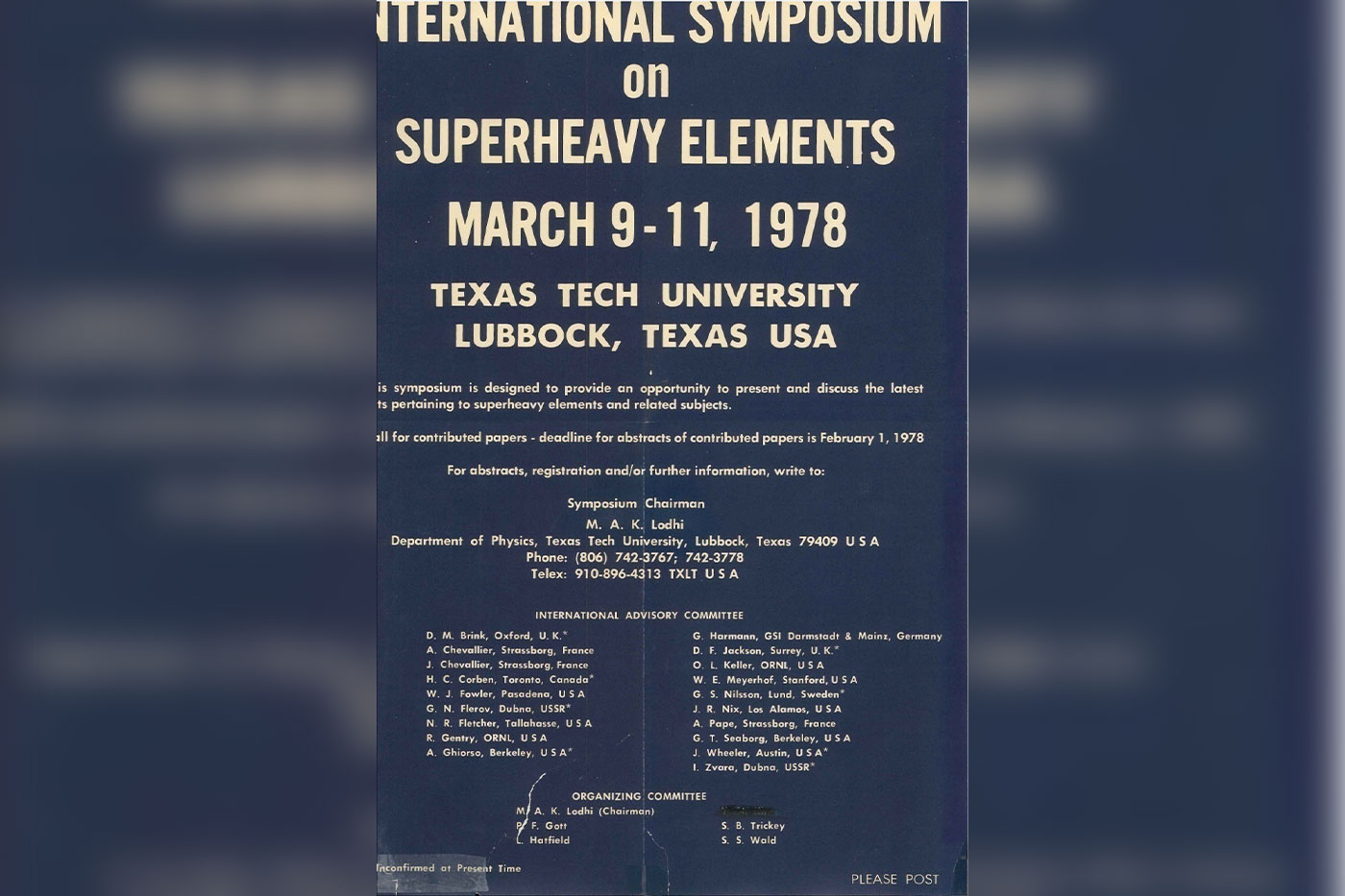
As a youngster, Lodhi jumped at the chance to be part of evening adult classes being taught in his uncle’s home. He was also moved by the instructor’s kindness, something he still remembers to this day. Roll those experiences together, and you have this mantra:
“Seek knowledge from the cradle to the grave,” he said.
He also believes a mediocre teacher tells while a good teacher explains, and a great teacher motivates and inspires.
Those are tidbits Lodhi holds onto for himself and shares with others. He sometimes attends classes taught by other faculty members to learn about their fields, and when seminar speakers have visited the department, Lodhi typically clears his calendar to make sure he can be there.
These days he enjoys few things more than sharing credit with former students who have gone on from Texas Tech to make their mark in the world of physics.
“His exceptional research work and accomplishments motivated me to carry on my own graduate studies at Texas Tech,” Farooq said. “He has been extremely helpful to me.”
Lodhi believes setting a good example for students is important. He wants them to see him working hard, being curious and staying engaged.
“Some of my students have gone on to great work,” he said proudly. “We have students who have gone to work at NASA and at national labs and university labs. When they see me working, they want to compete, so it is very motivating for them.
“You should be target-oriented, committed and devoted. I found that this came almost automatically to me. It was not something I had to work on. My time is devoted to what I am supposed to be doing. I also know that having a healthy mind and healthy body are connected.”
Along those lines, until recently, Lodhi was regularly jogging four miles in the pre-dawn hours. While a nagging knee injury has somewhat curtailed his running regimen, he remains committed to exercise early in the day, incorporating tennis, badminton and swimming into his physical activities.
He also keeps his mind sharp by playing chess and bridge and solving Sudoku puzzles. Because bridge requires four players, he makes do by reading and working through a daily newspaper column about bridge.
“Everything is on a schedule because I consider everything has a place,” he said. “In a way, this is how I keep myself alert. I find I still enjoy it when I learn something new.”
After 50 years on faculty, Lodhi’s title was changed to research professor. In the fall 2024 semester, the department celebrated his latest longevity milestone of 60 years (it occurred in 2023, but his travel caused it to be delayed).
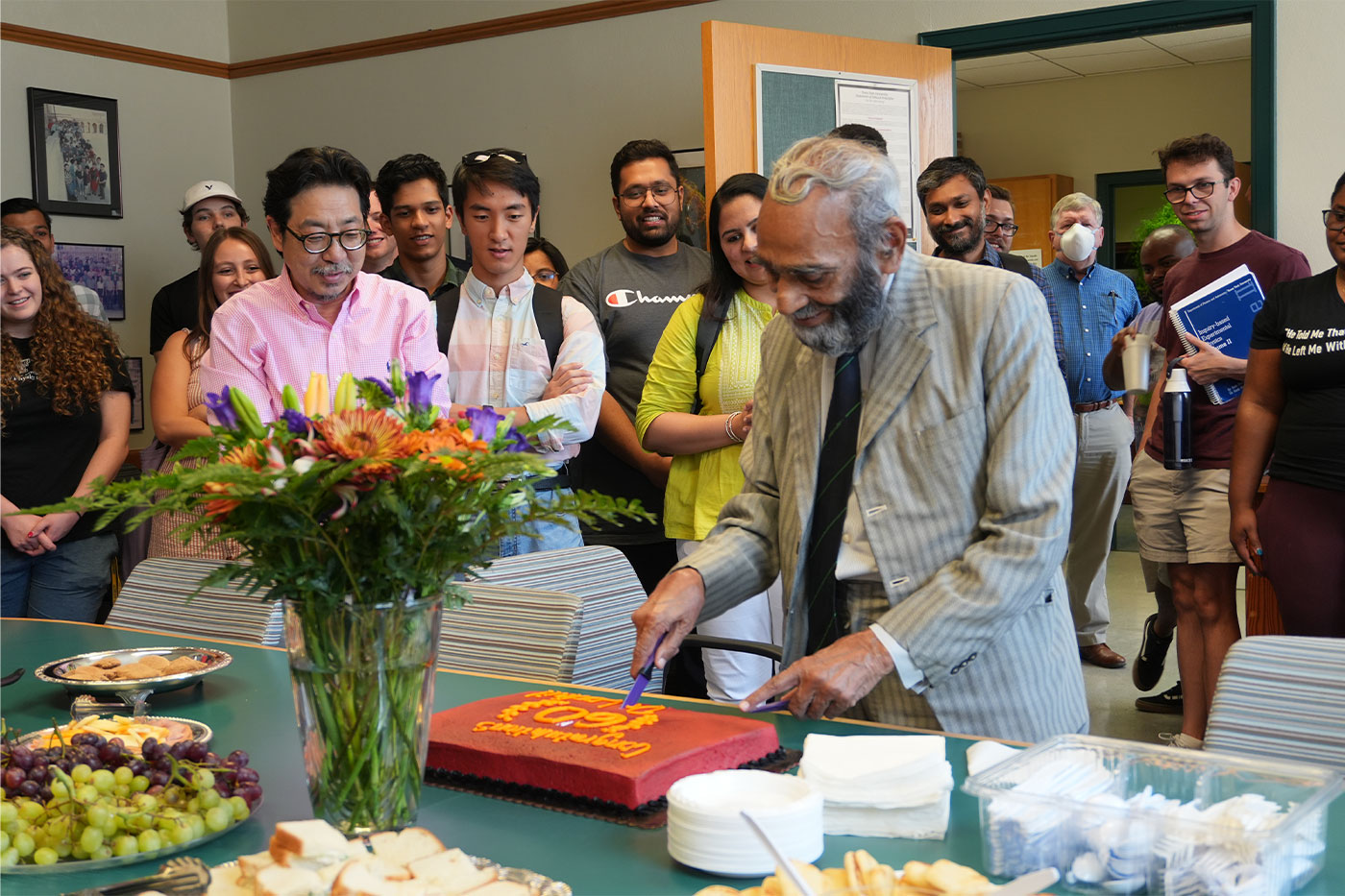
“He has achieved remarkable research accomplishments in nuclear and particle theory,” said Lee, who has chaired the department since 2018, “as well as in new and renewable sources of energy and advanced space power generation and management. He has contributed greatly to building Texas Tech as a research-oriented university.”
Yet, Lodhi still has things he wants to accomplish. Lodhi has been known to show up at the office early and stay late. He works the occasional weekend, although not as often as earlier in his career. Having regular days off is something he’s never really seen the need for.
He makes allowances these days and knows he is slowing down, but the word “retirement” is not part of his lexicon.
“I do take some vacation and go places I enjoy,” he said. “I still have a sense that I would like to go all over the world and see all of the continents.”
Speaking of travel, it’s funny how life frequently moves in a full circle. Lodhi, so eager to escape Lubbock after his arrival, found the place has a lot of advantages after all.
For one, the longer he was on faculty, the greater degree of freedom he had. Often, he traveled to Pakistan, something he continues to do to this day. Texas Tech granted him leave when he needed, and it was a mutually beneficial arrangement.
“I found that the place I wanted to run away from turned out to be my home,” he said. “And that is how time passed by.”

